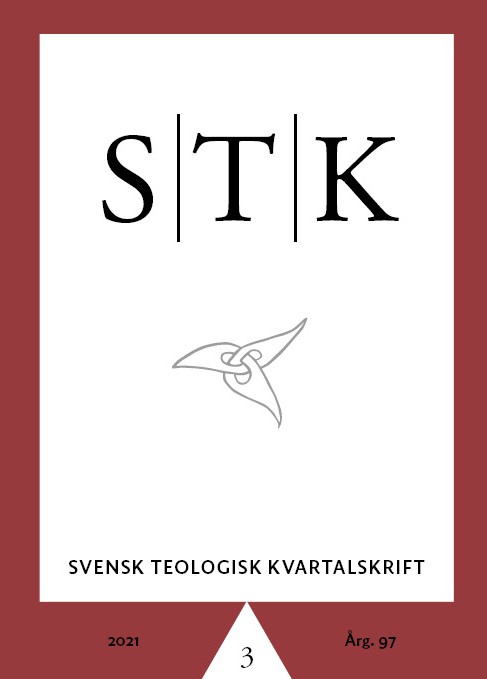Forskare eller ögonvittne?
Hundra år sedan Cadbury ställde frågan
DOI:
https://doi.org/10.51619/stk.v97i3.23459Abstract
Not every research article manages to stay relevant for an entire century, remaining an object for discussion even one hundred years after its composition. In 1921–1922, an American Lukan scholar, and later professor of the New Testament at Harvard University, Henry J. Cadbury, published three articles about the Lukan preface. These articles, and in particular one of them, are still discussed among Lukan scholars today. The aim of my article is to highlight this achievement of Cadbury's. Cadbury was not the first to write about the Lukan preface. The preface had generally been interpreted as evidence that Luke was a historian, and that his
gospel was a result of historical research about the events relayed in the story of Jesus. Cadbury did not fully agree. While he agreed that Luke was a historian, he did not agree that what he wrote constituted historical research. Instead, Luke claimed to have himself been present and personally experienced at least some of the events that he relates in Luke–Acts, especially the "we-passages" in Acts of the Apostles. The purpose of his narrative was to defend Christianity against false reports and accusations. His experiences of and close contact with the course of events allowed him to do so. Of course, such a profiled understanding of Luke's preface has caused much discussion and critique. I summarize contributions from three scholars: Ernst Haenchen, Loveday Alexander, and David P. Moessner. Following the interventions of these scholars, especially if we are listening to Moessner, the status quaestionis emerges that Luke was neither a reviewing historian nor an eyewitness but rather a well-informed tradent and interpreter of traditions with which he had been familiar for some time. Of course, Moessner does agree that Luke's preface operates within the framework of the historical genre, but the perfect participle παρηκολουθηκότιαρηκολουθηκότι ("having followed") in Lk. 1:3 does not mean "having investigated" but rather "having followed with the mind" or "having an informed familiarity with" all things that have happened. Thus, at least according to Moessner, Cadbury was both right and wrong.
Downloads
Publicerad
Nummer
Sektion
Licens
Copyright (c) 2021 Lennart Thörn

Detta verk är licensierat under en Creative Commons Erkännande-Ickekommersiell-IngaBearbetningar 4.0 Internationell-licens.


